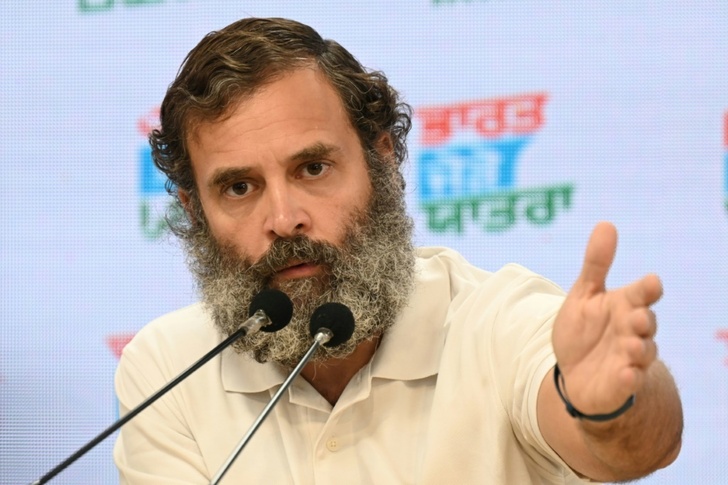An Indian court Thursday found opposition leader Rahul Gandhi guilty of defamation for a 2019 campaign trail remark implying that Prime Minister Narendra Modi was a criminal.
Modi's government has been widely accused of using the law to target and silence critics, and the case in the premier's home state of Gujarat is one of several lodged against his chief opponent in recent years.
Gandhi, the leading face of the opposition Congress party, was sentenced to two years imprisonment but immediately granted bail after his lawyers announced their intention to appeal.
The case stemmed from a remark made during the 2019 election campaign in which the 52-year-old had asked why "all thieves have Modi as (their) common surname".
His comments were seen as a slur against the prime minister, who went on to win the election in a landslide.
Members of the government also said the remark was a smear against all those sharing the Modi surname, which is associated with the lower rungs of India's traditional caste hierarchy.
"If you are going to insult the entire Modi surname, this is completely defamatory," Ravi Shankar Prasad, a lawmaker for the ruling Bharatiya Janata Party (BJP), told reporters.
"There was a proper hearing. He got an opportunity to present his side of things," he added. "The decision has been taken according to the due judicial process."
Gandhi's lawyer B. M. Mangukiya said his client had not meant to insult anyone.
"When the magistrate asked Gandhi what he had to say in his defence, the Congress leader said that he was fighting to expose corruption in the country," Mangukiya told reporters outside the court.
"His comments were not meant to hurt or insult any community."
Gandhi is the son, grandson and great-grandson of a dynasty of former Indian prime ministers, beginning with independence leader Jawaharlal Nehru.
But the scion of India's most famous political dynasty has struggled to challenge the electoral juggernaut of Modi and its nationalist appeals to the country's Hindu majority.
Gandhi faces at least two other defamation cases elsewhere in the country and a money laundering case that has been snaking its way through India's glacial legal system for more than a decade.
- Action against critics -
Thursday's verdict is the latest legal action against opposition party figures and institutions seen as critical of the Modi government.
Last month federal investigators arrested Manish Sisodia, a top member of the Aam Aadmi Party (AAP) which governs New Delhi, on allegations he had corruptly benefitted from reforms to the capital's liquor licensing rules.
Sisodia's party is seeking to supplant Congress as the main opposition to Modi's government and its members have decried his arrest as politically motivated.
Also in February, Indian tax authorities raided the BBC's local offices, weeks after the broadcaster aired a documentary on Modi's conduct during deadly sectarian riots decades ago.
The Editors Guild of India said then that the raids were part of a wider "trend of using government agencies to intimidate or harass press organisations that are critical of government policies".
str-abh/gle/mtp
© Agence France-Presse
Your content is great. However, if any of the content contained herein violates any rights of yours, including those of copyright, please contact us immediately by e-mail at media[@]kissrpr.com.
Source: Story.KISSPR.com

